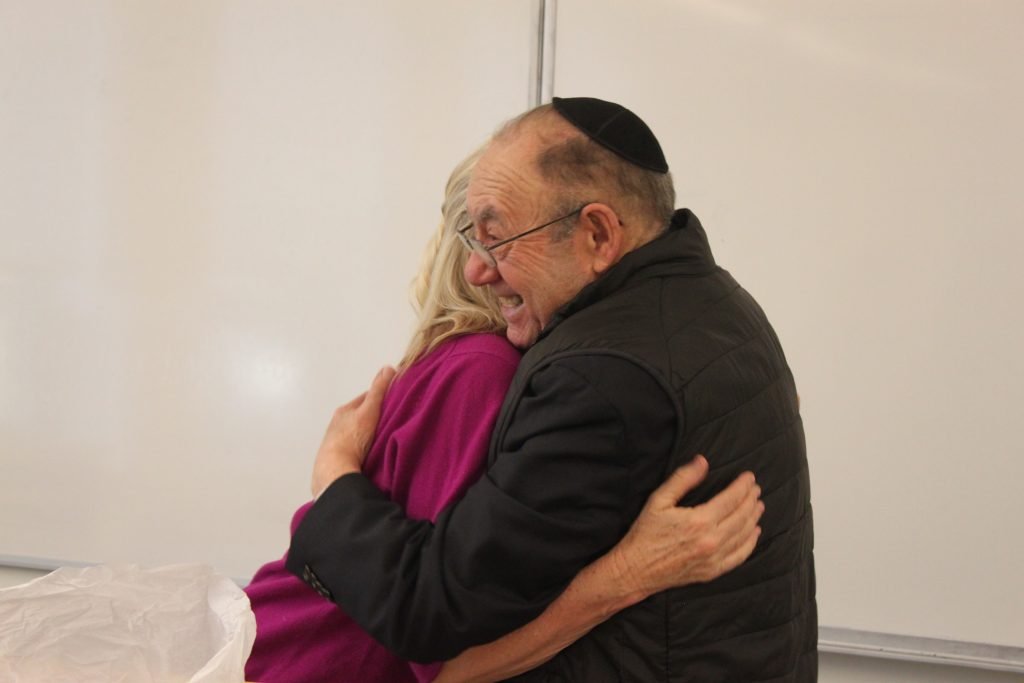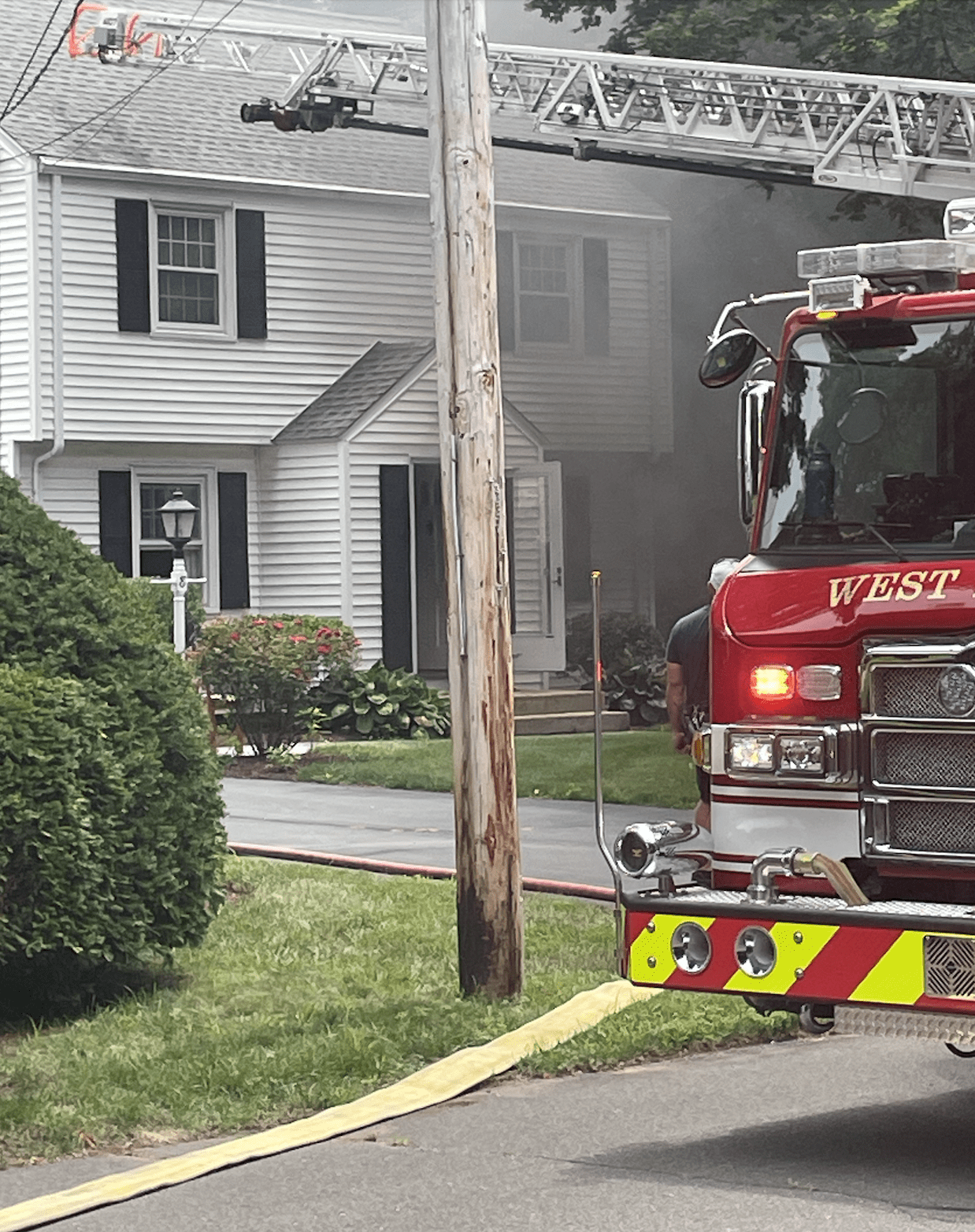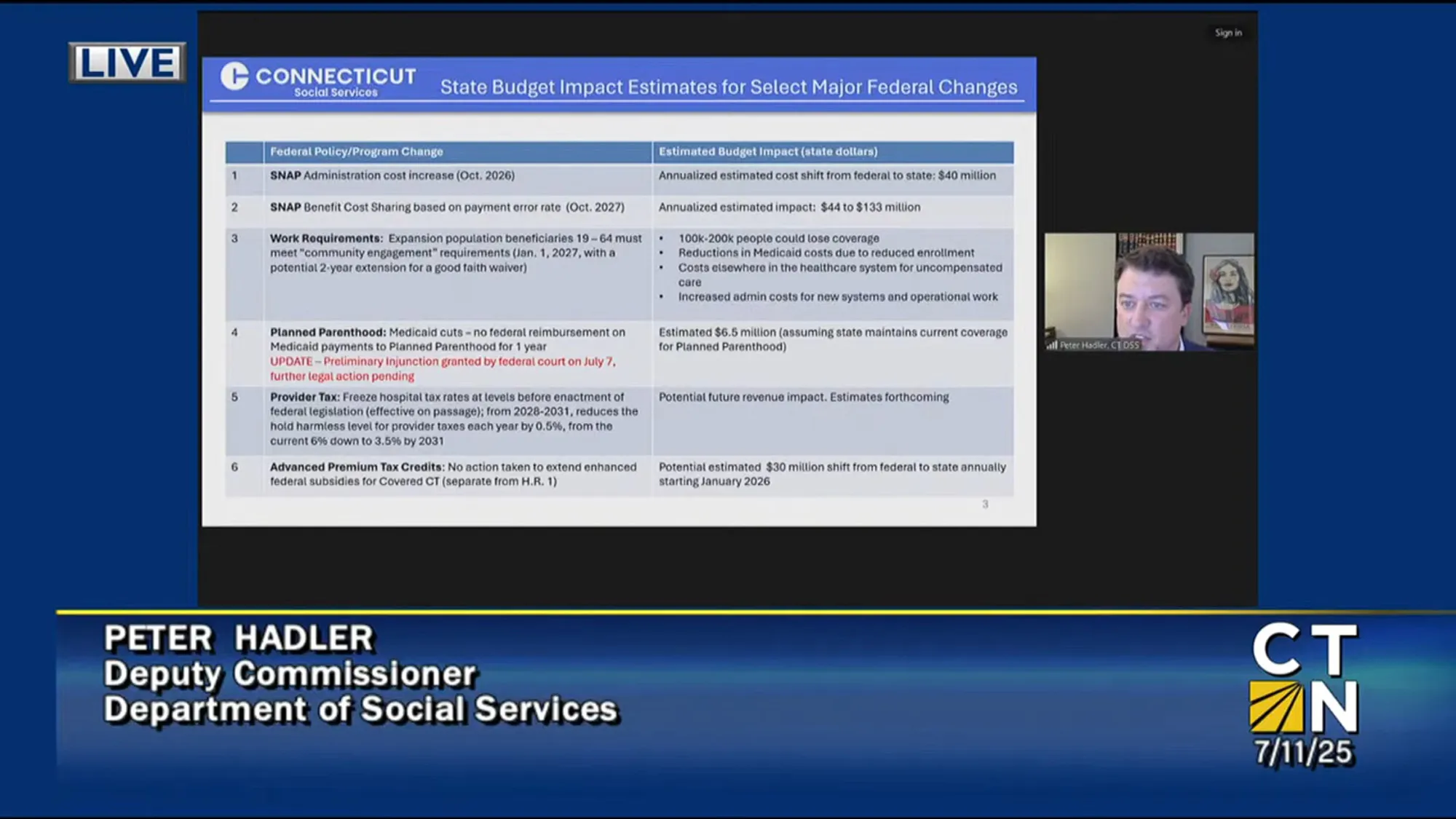Rabbi Lazowski Shares Holocaust Account at Kingswood Oxford

Audio By Carbonatix

Rabbi Philip Lazowski with International Human Rights teacher Stacey Savin’s class at KO. Courtesy photo
Rabbi Philip Lazowski shared his experiences with the International Human Rights class at West Hartford’s Kingswood Oxford School.

Rabbi Philip Lazowski hugs KO International Human Rights teacher Stacey Savin. Courtesy photo
Submitted by Jackie Pisani, Kingswood Oxford School
To hear a firsthand account of one of the last remaining Holocaust survivors is a deeply profound experience.
On Tuesday, Jan. 15, Rabbi Philip Lazowski spoke to Stacey Savin’s International Human Rights class at Kingswood Oxford about his survival during the Holocaust in Russia and the incredible strength of the human spirit.
Lazowski was born in 1930 in the small town of Bielica (present-day Belarus). When the Germans invaded Russia in June of 1941, German forces marched into his hometown and began their mass extermination of the Jewish population. The quick-witted 11-year-old helped hide his family in a cave he had built under their home. However, returning to their hideout one day, a German soldier caught Lazowski and forced him to the marketplace where a selection was taking place. Separated from his family, he asked several women if he could pretend to be their son. One woman with two young daughters took him as her son, and he was able to return to his family’s hideout.
The International Human Rights course course begins with an overview of Hitler’s rise to power and the steps along the way to “the final solution.” The class also studies other cases of genocide as well as other human rights abuses, both current and historical. Each student conducts an independent research on an on-going UDHR violation and proposes practical solutions.
As part of a recent assignment, students read one of the rabbi’s 14 books, Faith and Destiny, and his visit was a chance to both hear his story and ask questions. Many of their questions stemmed around the incredulous nature of how he was able to continue on and find the will to live, despite what seemed like an inevitably bleak future. The rabbi was poignant and thoughtful in his answers, his voiced tinged with a Slavic accent, pausing almost as if to pick the exact words to describe the heavy burden he felt was his calling and responsibility to explain. He ultimately boiled it down to one thing.
“The most important thing is your upbringing,” Lazowski said. “I had a great love for my mother. Even though I only had her for a short time.”
After being discovered in their underground cave, Lazowski and his family were forced into a theater in their town where they heard the soldiers coming. Lazowski said, “Hearing the trucks meant there would be another massacre.” Knowing they would likely be killed, his mother told him to jump out a second story window to give her son a chance at survival. He somberly recounts telling her “no” and pleading with her to jump as well. At the time she was holding his younger siblings and therefore could not jump herself. Taking a chair, she broke a window and pushed him out where he fell, next to another young boy, and together they escaped. She and his three younger siblings would not survive the Holocaust but Lazowski, his younger brother and father would, hiding out in the woods for two years before eventually making their way to the United States.
“My mother told me three things that day,” said Lazowski. “And I never forgot those three things because they are what kept me alive. Try to survive. Be somebody … be educated. And tell the world what went on during your lifetime.”
Approximately 85 percent of those who lived in the woods perished from cold temperatures, sickness, and the ever-present danger of being caught by Nazis. A fisherman by trade, Lazowski’s father had a handful of Christian friends who would give the three bread and potatoes to help keep the family alive. “No matter how dangerous it was for them, they would help us in many ways,” said Lazowski. “Otherwise, we would have not have been able to survive.”
Steadfast to his mother’s last wishes for him, Lazowski made it his life’s mission to tell his story to as many as he can. He has done this in countless powerful ways, including being ordained as a rabbi in 1962 and earning his doctorate in Jewish studies eight years later. Lazowski has also been a key figure in ensuring that history education includes learning about the Holocaust, as well as genocide on a global scale.
“Let me tell you something,” said Lazowski. “If you don’t learn history, history will repeat itself. If you are ignorant of history, someone else will write your history.”
Lazowski has worked tirelessly with Congress to create legislation that calls for schools to teach the atrocity of the Holocaust, as well as other massacres that have taken place over the course of history. His efforts have finally paid off. This year schools across the country will teach genocide in their lessons.
One student asked the rabbi that as dutiful and compassionate Americans what can they do in their lives to prevent atrocities, as well as those prejudices that they see and hear about every day. The rabbi urged students to speak up and to take action. “By standing by and not doing anything, you are not innocent. You are responsible for what other people do to other people. We can’t stand idly by when injustices are being done to other people. It is important when antisemitism has again started to flourish again after so many generations. If you are not united, you are divided. If you are divided you can do nothing.”
Another student asked Lazowski how he maintained his faith in the face of abject desperateness. “You can’t blame God for your problems. Any of them. He is separate from all of this so take Him out of it completely. People are the ones that do bad things, not God.”
After escaping the Nazis and fleeing to the United States in 1947, Lazowski continued his education at Brooklyn College. While attending a friend’s wedding, he met a young woman who told him about a family in Hartford, CT, that had once saved a boy from Bielica. Lazowski knew he was that boy.
In a true Hollywood exquisite twist of fate, Lazowski was able to find out where they lived and was reunited with the woman, Miriam, who had saved his life in the marketplace that day so many years ago. They met for coffee, and he began dating her oldest daughter, Ruth. As he concluded his talk of how he met his wife, Lazowski slyly cupped his hands around his mouth and smiled. “That’s right,” he said. “I married her daughter.”
The rabbi’s comments and harrowing account should remind us of who we are and who we can be collectively – that justice and righteousness need to form our moral center.
Like what you see here? Click here to subscribe to We-Ha’s newsletter so you’ll always be in the know about what’s happening in West Hartford!



